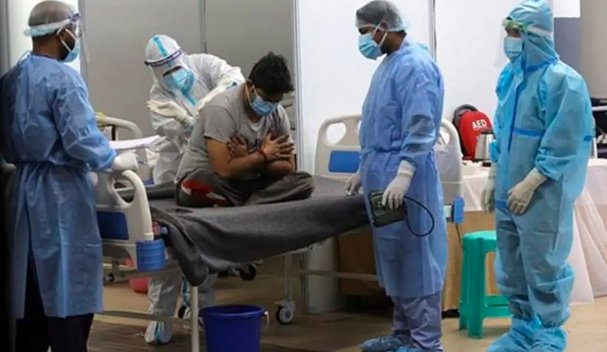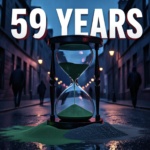A grieving father has publicly blamed both the UK and Scottish governments for the death of his son, who succumbed to COVID-19 after being turned away from the hospital multiple times. Lee Dodds, from Ayr, expressed his anger and frustration following the release of the first UK COVID Inquiry report, which concluded that the citizens of all four nations had been failed. Dodds’ son, also named Lee, died in April 2021 after contracting the virus from his wife, who worked in a nursery school.
Government Failures and Unpreparedness
Lee Dodds’ criticism stems from what he perceives as a lack of preparedness and inadequate response from both the UK and Scottish governments. He believes that the UK government failed to act swiftly when the pandemic first emerged, allowing the virus to spread unchecked. Dodds recalls shouting at the television for the borders to be closed as the virus spread through Italy, but his pleas, like those of many medical professionals, went unheard. This delay in action, he argues, played a significant role in the widespread transmission of COVID-19.
The Scottish government also faces criticism for its handling of the pandemic, particularly regarding the reopening of schools. Dodds points out that Scottish schools reopened two weeks earlier than those in England, a decision he believes contributed to the spread of the virus. His wife contracted COVID-19 at her workplace and subsequently passed it on to their family. By the time English schools reopened, his son had already succumbed to the virus, leaving Dodds to grapple with the loss and the belief that the tragedy could have been prevented.

Dodds’ anger is compounded by the fact that his son was turned away from the hospital three times before finally being admitted. Despite being placed on a ventilator, Lee Jr. died from multiple organ failure, a loss that haunts his father daily. The inquiry report’s findings have only intensified his frustration, as he feels that the governments’ failures directly contributed to his son’s death.
Emotional Impact and Ongoing Grief
The emotional toll on Lee Dodds and his family has been immense. He describes the fear and tears in his son’s eyes when he was placed on the ventilator, a memory that remains vivid and painful. Dodds’ grief is compounded by the knowledge that his son’s death might have been preventable with more decisive action from the authorities. The inquiry report’s conclusion that the citizens were failed has only validated his anger and sorrow.
Dodds’ wife, Charmaine, also bears the weight of guilt and grief. As a nursery school worker, she was exposed to the virus and unknowingly brought it home. The rapid spread within their household underscores the importance of stringent safety measures and timely government intervention. The family’s experience highlights the broader impact of policy decisions on individual lives and the devastating consequences of delayed action.
The ongoing grief has left Dodds with a deep sense of injustice. He continues to speak out, hoping that his story will prompt changes in how governments handle future crises. His fear of another pandemic and the potential for similar failures drives his advocacy for better preparedness and faster responses. Dodds’ determination to hold those in power accountable reflects his desire to prevent other families from experiencing the same heartbreak.
Calls for Reform and Accountability
In light of the inquiry report, Lee Dodds is calling for significant reforms in how the UK and Scottish governments prepare for and respond to emergencies. He believes that a fundamental overhaul is necessary to ensure that future crises are managed more effectively. Dodds’ advocacy is driven by the belief that the lessons learned from his son’s death can lead to better outcomes for others.
One of the key recommendations from the inquiry chairwoman, Lady Hallett, is the need for a whole-system approach to emergency preparedness. This includes better coordination between the UK government and devolved administrations, as well as more robust planning and resource allocation. Dodds supports these recommendations and urges policymakers to take them seriously to prevent future tragedies.
Dodds also emphasizes the importance of transparency and accountability. He believes that governments must be held responsible for their actions and inactions, particularly when lives are at stake. By sharing his story and speaking out, Dodds hopes to inspire others to demand better from their leaders. His call for accountability is a reminder that the decisions made by those in power have real and lasting impacts on people’s lives.
The heart-wrenching story of Lee Dodds and his son underscores the critical need for better preparedness and swift action in times of crisis. The failures of the UK and Scottish governments during the COVID-19 pandemic have left a lasting impact on many families, and Dodds’ advocacy for reform and accountability serves as a powerful reminder of the importance of learning from past mistakes.


















